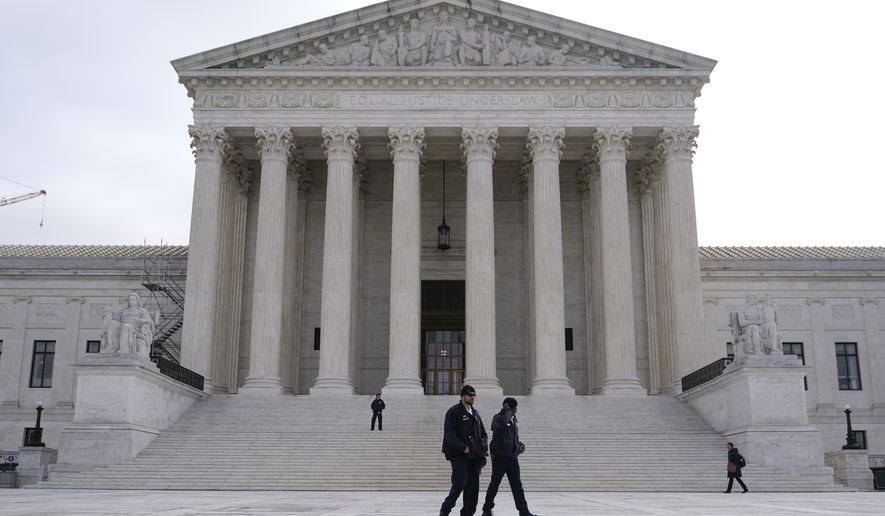Legal analysts say they see signs that the Supreme Court will try to back away from a hot potato case that poses big questions about who gets the final say over state elections laws.
The case came out of North Carolina, where the Republican-led General Assembly argued that the U.S. Constitution makes the legislature — not state judges or bureaucrats — the deciders of elections procedure.
The U.S. Supreme Court heard oral arguments in the case last year and is expected to issue a ruling by the end of June.
The high court asked for a new round of briefing last week after the North Carolina Supreme Court said it would revisit the case.
“It’s very likely the [state] court nullifies the prior decision, which would remove the Supreme Court case from the docket, so the Supreme Court may not even decide the huge, big, controversial independent state legislature case. It may just fall off the docket altogether,” said Josh Blackman, a professor at South Texas College of Law.
The case was considered to be one of the most consequential of this Supreme Court term. Liberal activists said a ruling for North Carolina’s legislature could upend voting rights protections in states across the country.
Ilya Shapiro, senior fellow and director of constitutional studies at the Manhattan Institute, said it’s not clear whether the North Carolina Supreme Court’s rehearing will make the federal court case moot. He said the justices probably would rather have the case disappear from the docket.
“A dismissal is certainly possible now, and I’m sure many of the justices would prefer not having to rule either way, at least not yet,” Mr. Shapiro said.
They may have to rule on the issue at a later date, perhaps during an election year.
The case stemmed from a dispute between North Carolina’s legislature and state courts over who has the final say on congressional district maps. The state’s high court tossed the legislature’s map and imposed its own.
The lawmakers said the state Supreme Court violated the U.S. Constitution’s elections clause, which says, “The Times, Places and Manner of holding Elections for Senators and Representatives, shall be prescribed in each State by the Legislature thereof.” The lawmakers said that clause gives legislatures the final say.
The justices seemed skeptical of that position during oral arguments. They suggested it would upend checks and balances.
“This is a proposal that gets rid of the normal checks and balances on the way big governmental decisions are made in this country, and you might think it gets rid of all those checks and balances at the time they are needed most,” Justice Elena Kagan said at the time.
Curt Levey, president of the Committee for Justice, a nonprofit that seeks to uphold the Constitution, said there is a 50-50 chance that the Supreme Court will dismiss the major case and in fact might rule on the merits. He noted that there isn’t precedent for this type of jurisdictional issue.
“It’s difficult to divine the justices’ motivation in asking for briefing in the absence of the parties raising the jurisdictional issue,” Mr. Levey said. “In any case, the March 20 deadline for briefing leaves the Court plenty of time to decide the case this term if that’s what it wants to do.”
The case is Moore v. Harper.
• Stephen Dinan contributed to this report.
• Alex Swoyer can be reached at aswoyer@washingtontimes.com.




Please read our comment policy before commenting.